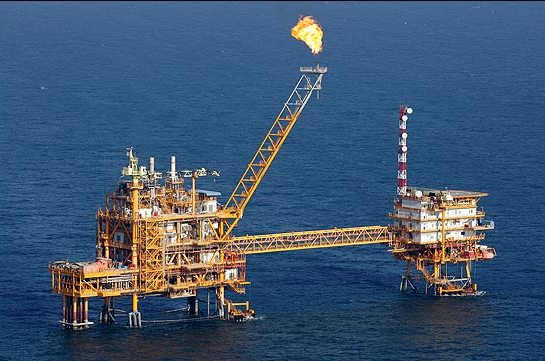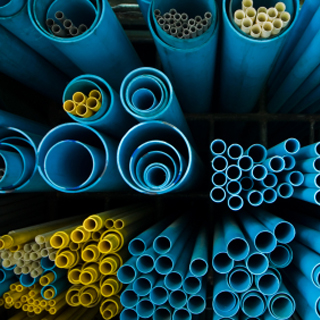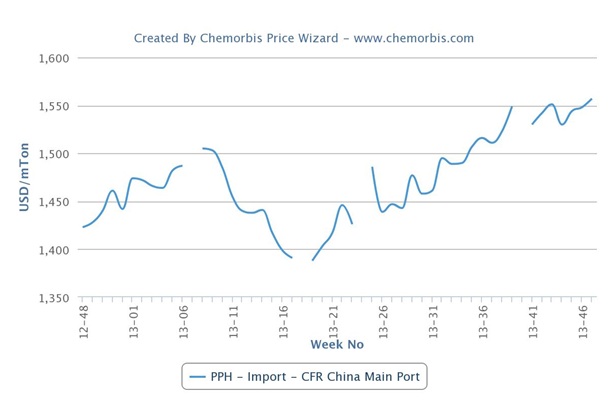 Mukesh Ambani doesn’t do small. He is the richest man in India. His company, Reliance Industries Ltd. (RIL), operates the largest oil
Mukesh Ambani doesn’t do small. He is the richest man in India. His company, Reliance Industries Ltd. (RIL), operates the largest oil
refinery complex ever built from scratch.
And late last year, he moved into one of the planet’s most expensive private homes. The 27-story apartment features a spa, a 50-seat movie theater and a rooftop heli-pad — all for six residents: Ambani, his wife, his three children and his mother.
Ambani’s clout permeates India and beyond, Bloomberg Markets magazine reports in its October special issue on the 50 Most Influential people in global finance. He and his family own more than 45 percent of Reliance Industries, among the country’s largest companies by market value and the world’s leading manufacturer of polyester. The stake was valued at $26.7 billion on Sept. 7.
Bank of America Corp. (BAC) named Ambani a nonexecutive director in March, the first person from outside the U.S. that the Charlotte, North Carolina-based bank has ever nominated to its board.
A relentless India advocate, Ambani, 54, has committed his company — through its philanthropic Reliance Foundation — to building a new university and an engineering academy in a country where half the population is younger than age 25.
Money Magnet
Ambani is a magnet for the planet’s moneymen, especially since he settled an infamous dispute with his younger brother Anil. Reliance will have more than $16 billion in cash on its balance sheet by year’s end — one of the top 30 cash hoards for nonfinancial firms anywhere, according to data compiled by Bloomberg.
“Every investment banker in the world who knows what is going on has his number and is calling him,” says Jon Thorn, manager of the $335 million India Capital Fund Ltd., which holds Reliance in its portfolio. Ambani declined to comment for this story.
Reliance plays an unparalleled role in an economy that’s among the fastest-growing emerging markets and home to almost a sixth of the world’s people. With interests from oil and gas to retail and biotech, the company makes up 10 percent of India’s benchmark Sensex index. Annual revenue of $58 billion represents 3.6 percent of India’s gross domestic product.
“Reliance has a tremendous amount of impact on the economy,” says Susanta Mazumdar, manager of T. Rowe Price Group Inc.’s Global Infrastructure Fund. As of July 31, T. Rowe Price held 11.2 million shares — or 0.34 percent — of Reliance, divided among almost a dozen portfolios.
Like Buffett
Ambani’s annual shareholder meeting, like the confab hosted by fellow billionaire Warren Buffett, draws thousands to hear the sage words of the chairman — and to pepper him with questions. Recent topics ranged from whether Reliance should raise its dividend to the quality of the free ice cream that Reliance offered to attendees.
The town-hall style show isn’t the only similarity between Ambani and Buffett. Like the American investor, Ambani is a dedicated bargain hunter who has a history of not overpaying for acquisitions.
Even with Reliance’s pot of cash, there was some hand- wringing at this year’s meeting: Shares sagged 21 percent in 2011 through Sept. 7 as investors worried that Reliance would miss gas production targets, says Sanjeev Prasad, an analyst at Kotak Institutional Equities in Mumbai.
To help boost production, Reliance teamed up with BP Plc (BP/) in February, selling it a 30 percent stake in 21 oil and gas blocks for $7.2 billion.
Spreading Influence
As India grows and Reliance becomes increasingly global, Ambani’s influence is only likely to spread. Those who know him say he’s a man of soaring ambition infused with national pride.
“If people say, ‘In India, you can’t do this,’ then he thinks, ‘I’ll show you,’ and he wants to do it better than the rest of the world,” says Akhil Gupta, chairman of the Indian arm of private-equity firm Blackstone Group LP (BX) and a close friend.
This explains Ambani’s massive refinery and colossal residence. The high-rise, while designed by an American firm, subscribes to Vastu Shastra, a Hindu system of directional precepts similar to Chinese feng shui.
Ambani, unlike some of India’s business elites, is not infatuated with the customs of Western moguls. He often speaks in Gujarati, the native tongue of his family, instead of English. He prefers South Indian street food to sushi and hasn’t acquired a taste for wine. On visits to New York, he shops at Macy’s for his favorite khakis.
Rite of Passage
Gupta first met Ambani in Stanford University’s MBA program in 1979. Ambani never completed his degree. After his first year, his father, Dhirubhai, summoned him home to oversee construction of a polyester mill. It was a rite of passage in his journey to the top of Reliance, founded as a spice shop in 1958, the year following Mukesh’s birth.
“Reliance has always historically based itself on the single principle that Indian growth is going to be terrific and it is going to be permanent so we should be part of it,” Thorn says.
Following Dhirubhai’s death in 2002, Ambani feuded with Anil over Reliance’s direction. In 2005, the company split roughly in half, with Mukesh retaining control over refining, petrochemicals, oil and gas and textiles, while Anil took newer businesses in telecommunications, asset management, entertainment and power generation. A noncompete agreement kept them on their own turf.
Brothers Make Up
The brothers settled a legal dispute over sharing natural gas and dissolved the noncompete pact last year. Now Mukesh is moving back into telecommunications, acquiring Infotel Broadband Services Ltd., which has rights to provide broadband wireless in India, for $1 billion in June 2010.
Ambani is also pushing into financial services. In March, he launched an Indian joint venture with U.S. investment company D.E. Shaw Group. In June, Reliance paid an undisclosed sum to Bharti Airtel Ltd. (BHARTI) for a 74 percent stake in two joint ventures with France’s AXA Group that sell insurance in India.
It has been slower going outside India. Reliance failed to acquire bankrupt petrochemical company LyondellBasell Industries NV. (LYB) It also lost out to BP in buying Value Creation Inc., a Canadian oil sands company, although it did purchase stakes in U.S. shale gas sites through three joint ventures.
Those who know Ambani say they expect him to be very cautious making acquisitions with Reliance’s cash.
“He generally believes in building, not buying,” Gupta says.
Whatever Ambani builds makes an impression — on the Mumbai skyline, on India, and, increasingly, on the rest of the world.
Source : www.bloomberg.com





